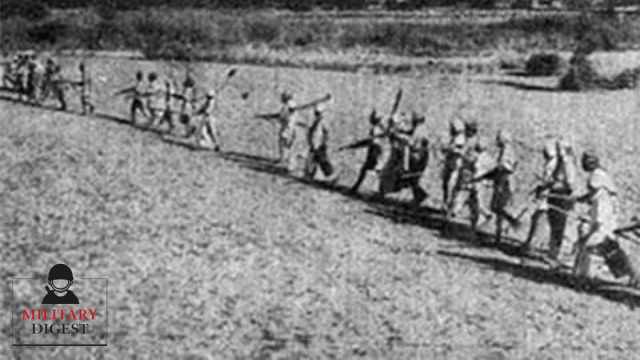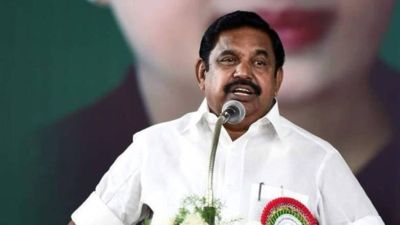Military Digest | Truckers, villagers and NCC cadets who fought 1965 Indo-Pak war: a time to remember the forgotten many
Search parties of villagers, the NCC, and the police caught close to 160 of the 180 Pakistani commandos who had parachuted into Punjab to sabotage the airfields of Pathankot, Adampur, and Halwara.
 Villagers in Punjab searching for Pakistan Army commandos who parachuted near airfields in the 1965 war.
Villagers in Punjab searching for Pakistan Army commandos who parachuted near airfields in the 1965 war.On the 60th anniversary of the 1965 India-Pakistan war, Punjab is fighting another kind of battle along the border. The war zone that saw pitched battles between the two armies is today inundated with floodwaters, with the villagers rising up to the occasion and making every effort to secure their homes and hearths.
It was this very fighting spirit of the average Punjabi that was visible 60 years ago when the Indian Army took the battle to Pakistan, and the border villages resonated with artillery gunfire, rampaging tanks, and soldiers shouting war cries.
However, there are numerous contributions that have either gone unrecognised over the past six decades or been forgotten in the mists of time. In this week’s column, we recall the efforts of these people and salute them for having defended the country despite not wearing an Army uniform.
The truck drivers of Punjab
The first among those who need to be recognised are the truck drivers of Punjab. The trucking profession has always attracted a substantial number of Punjabis, and these truckers did not care for their lives as they actively helped the Army.
Civilian trucks ferried men and materials, including arms and ammunition, deep into enemy areas that were occupied by the Indian Army in the Sialkot and Lahore sectors. These truckers also brought Pakistani prisoners of war from the war zone back to the rear areas.
Former Chief Election Commissioner M S Gill, who was deputy commissioner of Ambala in undivided Punjab during the war, has written how he requisitioned hundreds of trucks with just a chit of paper signed by him for transporting the 4 Mountain Division to the India-Pakistan border and how the truck company owners and drivers accepted the task without even a murmur of disagreement.
Unfortunately, neither the Punjab Government nor the Union Government has adequately recognised these civilian truckers, even though the truckers attached to Army units and the Army Service Corps (ASC) did receive gallantry awards. But the average Ganda Singh, Nathu Singh, or Tarsem Lal who took part in the war despite being noncombatants has gone unrecognised to date. At least a common memorial needs to come up at a suitable location in Punjab to honour their efforts.
Villagers, NCC cadets and a railwayman
The Pakistan Army’s highly trained Special Service Group (SSG) commandos were paradropped in villages adjacent to the Pathankot, Adampur, and Halwara airfields in Punjab on the intervening night of September 6 and 7.
However, little did these highly trained commandos achieve when faced with the combined wrath of doughty Punjabi villagers and National Cadet Corps (NCC) volunteers. Search parties of villagers, the NCC, and the police caught close to 160 of the 180 Pakistani commandos who had parachuted into Punjab.
The mission to sabotage the three airfields was an abysmal failure, and all captured Pakistani commandos were subjected to a sound beating before being handed over to the military authorities.
On September 13, two extraordinary civilians earned the Ashok Chakra Class III (now Shaurya Chakra) for their daring action of saving a train carrying diesel at the Gurdaspur railway station.
Chaman Lal, a fireman of the Railways, and Sergeant Partap Singh, a cadet of the NCC’s 10th Battalion in Gurdaspur, saved a goods train that was attacked by a Pakistani F-86 Sabre aircraft, with the help of 59 other NCC cadets.
Chaman Lal and Sergeant Partap not only prevented the destruction of wagons and valuable stores but also saved the lives of hundreds of people. Chaman Lal was given the award posthumously, while Sergeant Partap received it from President S Radhakrishnan in 1966.
Villagers in Punjab searching for Pakistan Army commandos who parachuted near airfields in the 1965 war.







